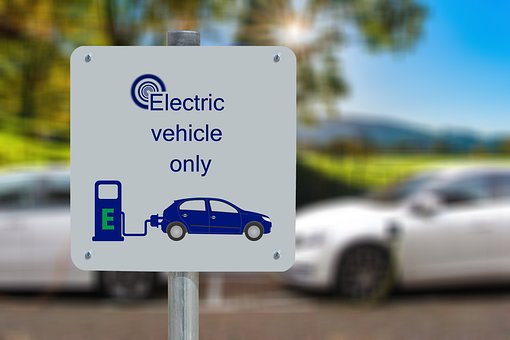The electric vehicle industry has seen a surge in the last few years. The demand for electric vehicles has gone up in every sector. Real estate is one such sector where EVs have a huge demand. In this article, we will understand the impact of EVs and Real Estate Industry.
The companies are providing charging stations as well as other components in the market. This has become mainstream for almost every sector in our country. People are adopting electric vehicles for their low-cost maintenance, ease to use, and no harmful emissions.
Electric Vehicle and Real State Industry
The electric vehicle ecosystem is likely to get benefit from the real state sector. People want a home for themselves. The demand for houses, flats, and bungalows is going up and has gone up considerably. These projects will give rise to the demand for electric vehicles. Nowadays, all the real state projects are planned accordingly for electric vehicles.
Recent Developments in EVs and Real Estate Industry
Recently we have seen a lot of activity in the electric vehicle space. The initial push we have seen is from the government itself. Schemes such as FAME I and II, the PLI scheme, and various incentives have encouraged the adoption of electric vehicles. Almost 50% of Indian states have drafted their own electric vehicle policies. In the recent COP 26 summit, India decided to reduce its carbon emission to zero by the end of the year 2070.

Benefits for Real Estate Sector
It is estimated that around 1 lakh crore will be invested in the electric vehicle segment in the next 3 to 4 years. This estimate is given by a report from leading property consultants across the country.
This investment will be used in the form of the construction of new manufacturing units, charging infrastructure, and industrial zones. The investments from the private real state developers in electric vehicle infra include charging setups in their upcoming projects. The infusion of both these sectors will create a huge opportunity, market growth, and potential for a lot of profit.
Team Building of EVs and Real Estate Industry
We can clearly understand that the current momentum in electric vehicles will rub off on the real state sector as well. The rise in demand for electric vehicles will propel the real estate players to make investments in installing charging stations in their properties. The electric vehicle business will develop with a CAGR of 40% by 2027. The reasons are government policies, subsidies, incentives, a rise in demand, concern for the environment, and many more.
Maximum developers nowadays include electric vehicle infrastructure in their blueprints. They predict that EV mobility will increase considerably in the coming years.
Leading Real Estate Players
Almost all leading real estate players in our country have projected a positive view of electric vehicles. Most of them have the same view of integrating innovative solutions into their projects. They all are working for the electrification of premises with electric vehicle infrastructure. They offer and develop their project including electric vehicle-ready parking. All the infrastructure projects be it residential, corporate complexes, shopping malls, hospitality, or whatever.
Gearing Up for the Future
People are being conscious of the environment and want to move towards a sustainable future. The rising environmental pollution and hike in oil prices have made everyone think of a sustainable solution. Due to the rising demand for sustainable transport infrastructure, leading hospitality brands are working to invest in electric vehicle infrastructure.
Real estate developers are working to create facilities that are on-the-go chargers and at the same time, they are eco-friendly and convenient. The Indian Hotels Company announced a collaboration with Tata Power to install EV charging points across different properties.
Demand-Driven Activity for EVs and Real Estate Industry
The Ministry of Housing and Urban Affairs has amended the model building laws. According to the new law, 20% of all the parking spaces in all the real state projects must have EV charging facilities. This really shows that this is a demand-driven activity rather than a compliance-driven one.
The increase in sustainability in the real state sector is being demanded. Demand is not only by the policymakers but also by the tenants and the customers. The reason for the demand includes electric car charging as well as energy management. This will be a win-win situation for both sectors.
Change in Properties due to Electric Vehicle Infrastructure
The properties having electric vehicle infrastructure will become dearer and costlier. One negative point is that heavy investment is required for setting up electric vehicle infrastructure in new projects. The cost is even more for restructuring the old ones according to the mandate. There are lots and lots of existing projects that do not have charging points. The real problem is with the existing ones. Leading real estate companies are planning to install single charging points in two-car parking. This will provide the solution also and will save space and cost considerably.

Conclusion
So, overall, we can say that developers are installing charging stations in their new projects. They are also working hard to include charging infrastructure in their old projects. The overall scenario will increase the demand for electric vehicles. In another way, the demand for electric vehicles will make it compulsory to include charging solutions in every project.
So, these two sectors are interdependent now and need to work together. Working together, we can achieve the target of EV30 @ 30.

